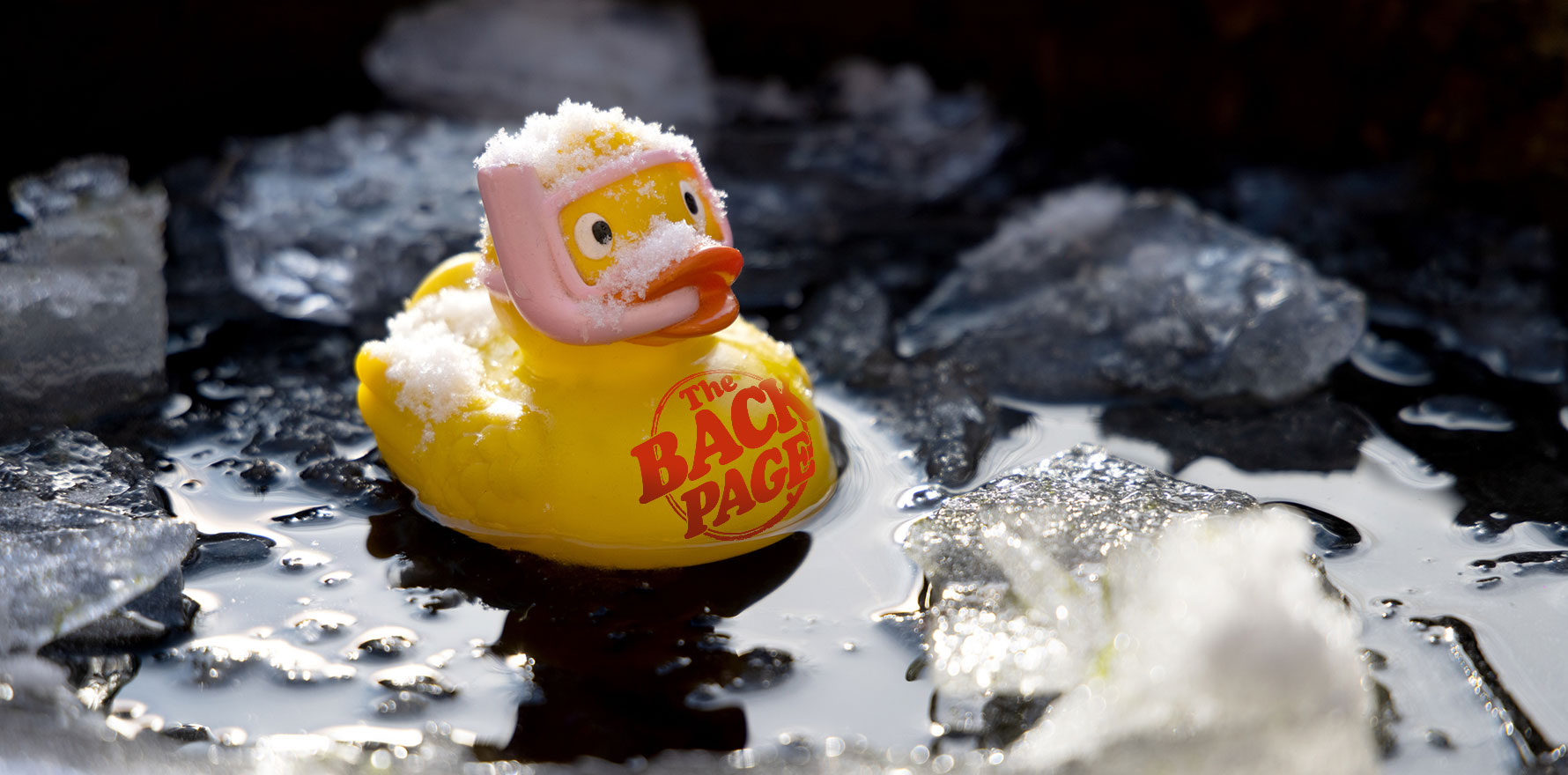A tepid endorsement for cold-water immersion therapy.
Your Back Page scribbler is no stranger to very cold water, having grown up in the south of New Zealand’s South Island.
There, even at the height of summer, dipping your feet into the local surf was like driving knitting needles through your ankles.
It boggles the mind, therefore, to learn that there are increasing numbers of folks out there who voluntarily partake in mid-winter ocean dips or lower themselves into buckets of iced water in the belief that it is good for their health.
But given that Finnish people have a centuries-old tradition of steaming themselves in saunas then rolling about naked in the snow outside, and that Finland is routinely declared to be the “happiest country in the world”, perhaps there is something good to be said for cold-water immersion therapy.
That is a question which also intrigued researchers at the University of South Australia, who decided to test the science by undertaking a comprehensive systematic review and meta-analysis of the data around the effects of cold-water immersion on health and wellbeing.
Their results, which were published last week in the journal PLOS One, are revealing.
By analysing data from 11 studies involving more than 3000 participants, our boffins found that cold-water immersion therapy had the ability to lower stress, improve sleep quality, and boost quality of life.
Sounds good, right?
Yes, but there were also significant caveats, namely that the positive effects were both nuanced and time-limited.
“In this study, we noted a range of time-dependant results. Firstly, we found that cold-water immersion could reduce stress levels, but for only about 12 hours post exposure,” researcher Tara Cain told media.
“We also noted that participants who took 20, 60, or 90 second cold showers reported slightly higher quality of life scores. But again, after three months these effects had faded.”
Counterintuitively, the review also found that cold-water immersion caused a temporary increase in inflammation. Which was surprising given the popularity of post-game ice-baths for elite athletes to reduce inflammation and muscle soreness.
The researchers said this increase in inflammation was the body’s reaction to the cold as a stressor, which subsequently helped the body adapt and recover in much the same way as vigorous exercising of muscles causes initial damage but also makes them grow stronger.
Because of this, the authors warned that folks with pre-existing health conditions should take extra care if participating in cold-water immersion experiences “as the initial inflammation could have detrimental health impacts”.
There was bad news also for spruikers of cold-water immersion as a therapy to boost immunity and mood, with the researchers saying they “found very little evidence to support these claims”.
“Right now, there isn’t enough high-quality research to say exactly who benefits most or what the ideal approach is to cold-water immersion. More long-term studies, among more diverse populations, are needed to understand its lasting effects and practical applications,” Cain added.
Which is, at best, a pretty lukewarm endorsement for joining the cold-water club.
So for now we going to ignore those smug polar-bear paddlers and stick to our hot showers and heated swimming pools.
Send thermally insulated story tips to penny@medicalrepublic.com.au.


